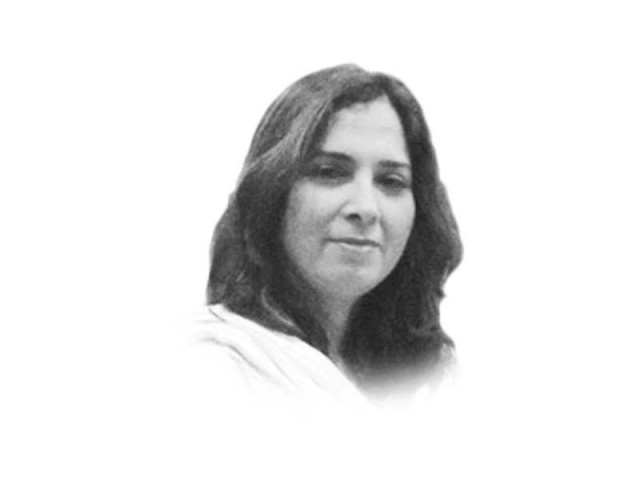Re-formatting Pakistan’s image
The civil-military relation has been on the roller coaster for years long

The writer is a journalist based in Lahore. She tweets @durdananajam
Pakistan’s foreign policy has been mostly swayed by the armed forces. The character of the state was shaped in the same context through which the country had decided to interact with the international players. The Jihadi doctrine that earned us kudos for its divinity to reduce one of the super powers of the world, the Soviet Union into rubbles, could not have been crafted without first letting the lesson in Jihad simmer in the domestic milieu. It was not only a handful of warriors taught in Quranic junction of Jihad raised in the remote areas of Pakistan. It was a nation built to confront the west, the Satans wherever it could be, and the immoral that fail to fit our definition of morality. Parallel we had got the desire of holding on to Afghanistan, with a sole, ambition to keep Indian away from Pakistan and not allowed to use Afghan soil against us.
We had two doctrines, the Jihad against the evil and India being the worst enemy of Pakistan. Apparently, the principles looked fine. A Muslim must shun evil and remain mindful of its enemies. However, when Afghanistan became empty of the powerful, one quashed and the other gone back to its home, the realisation of combating Kufr with Iman took a toll. There born Osama bin Laden, with a team of perpetrators to elevate Islam and bring doom to the forces that had brought miseries to the lives of the Palestinians and the Kashmiris. With it came the desire to lessen the role of the West in the Middle East. The desire grew stronger after the gulf war when the US forces were stationed in most of the Middle Eastern countries. It grew further when Israel was allowed to bomb Gaza without any let up until the entire generation of Palestine has been wiped out in different strikes. It overwhelmed the Jihad coded warriors when after 9/11 Afghanistan was invaded by the US.
Suddenly the world was full of non-state actors. The US with its allies was now fighting against unknown and largely disintegrated forces. The supply kept growing. The combat became difficult day after day. The supply line seems ever furnished with new recruits. Fingers were raised at Pakistan for providing safe havens to terrorists in its unmanned tribal areas. For infiltrations in Kashmir, the news had it that Muzaffarabad in Azad Kashmir was being used to provide training and safe havens to the infiltrators.
After 9/11 as pressure grew on Pakistan, many organizations believed to promote extremism were banned. Since no legal framework was developed to keep the lid tight on the banned groups, they resurfaced with new names. The US believes that it has been unable to defeat the Taliban in Afghanistan because Pakistan never allowed the supply line-producingterrorists become dry. The two men, Hafiz Saeed and Azhar Mahmood, captured headlines for their capacity to keep India in awe of Pakistan’s ability to dwarf its hegemonic ambitions in the region. Pakistan, in spite of all, could not be weakened, so to say, because of these proxies defending the country. Boggled, the international community with India and the US in the lead threatened to isolate Pakistan. Buying out homegrown militancy that erupted unhindered in the wake of weak governance fueled this ambition.
The spectre of isolation is on us again. And because the military sits at the helm of foreign policy the matter is lynched to it. The government thinks that its diplomatic efforts are running into losses due to the perception that Pakistan supports the good terrorists. India has been trying all along to isolate Pakistan. Though this narrative should not keep us from becoming an accommodative neighbour, the fact that we are not doing enough to garner stronger relations internationally through trade and development is instructive that we may prove India right.
It will not be a bad idea if Pakistan’s image is reformatted but without pitting the government and the military against the other on the back of a media trial.
Published in The Express Tribune, January 9th, 2017.
Like Opinion & Editorial on Facebook, follow @ETOpEd on Twitter to receive all updates on all our daily pieces.















COMMENTS
Comments are moderated and generally will be posted if they are on-topic and not abusive.
For more information, please see our Comments FAQ